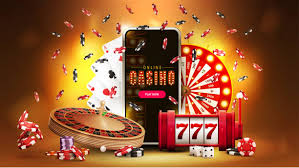Online Gaming and Goal Setting
Online gaming can provide an engaging platform for goal setting and achievement. Many games are designed with structured objectives and challenges that encourage players to set and pursue goals. Here’s how online gaming relates to goal setting:
- In-Game Objectives: Most online games 인디벳 feature a variety of in-game objectives, such as completing quests, defeating bosses, or achieving specific milestones. These objectives serve as clear goals for players to strive toward.
- Progression Systems: Games often include progression systems where players earn experience points, levels, or in-game currency as they accomplish tasks. These systems provide a sense of achievement and motivate players to set new goals to advance further.

- Customization Goals: Many games allow players to customize their characters, vehicles, or homes. This customization process encourages players to set aesthetic or functional goals and work toward achieving their desired look or functionality.
- Competitive Goals: Online multiplayer games often involve competitive play, such as ranking systems or leaderboards. Competing against others can motivate players to set goals related to skill improvement and ranking advancement.
- Achievement Hunting: Some players are motivated to collect in-game achievements or trophies, which often require completing specific tasks or challenges. These achievements can be a source of motivation and goal setting.
- Exploration and Discovery: Open-world games and exploration-based games encourage players to set goals related to discovering new locations, secrets, or easter eggs within the game world.
- Economic Goals: Games with virtual economies, like MMOs and simulation games, allow players to engage in trading, crafting, or resource management. Setting economic goals and accumulating wealth can be a central aspect of gameplay.
- Skill Mastery: Online gaming often involves developing various skills or abilities. Players may set goals to master specific skills or classes within the game.
- Team Objectives: In multiplayer games, players often collaborate to achieve common goals. This encourages teamwork and cooperative goal setting.
- Role-Playing Goals: Role-playing games (RPGs) often involve character development and story progression. Players can set goals related to character growth, alignment choices, or storyline outcomes.
- Speedrunning: Some gamers set goals to complete games as quickly as possible, known as speedrunning. This involves optimizing gameplay, memorizing routes, and setting personal records.
- Community and Clan Goals: Online gaming communities and clans often have shared goals, such as conquering a particular challenge or completing a raid together. These collective goals foster a sense of camaraderie and cooperation.
- Real-Life Skills: Certain games can help players develop real-life skills. For example, strategy games can improve critical thinking, while flight simulators can enhance piloting skills.
- Creative Goals: Games that allow players to create content, like custom levels or mods, enable creative goal setting. Players may aim to design the most challenging level or create the most popular mod.
- Time-Limited Events: Games often introduce time-limited events and challenges, which encourage players to set short-term goals and participate during specific timeframes.
Online gaming can teach valuable lessons about setting, pursuing, and achieving goals. It can foster a sense of motivation, discipline, and perseverance as players work toward accomplishing tasks and objectives within the game world. These skills can also be transferable to real-life goal setting and achievement. However, it’s essential for players to maintain a healthy balance between gaming and other aspects of life and to set boundaries to prevent excessive gaming.


